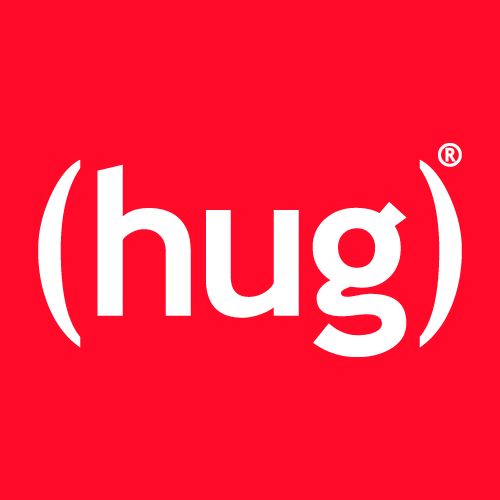Why you should build a brand, not just a business
(5 minute read)
Building a business is admirable, and it can earn you a decent living, but it won’t change the world.
It is becoming increasingly popular, in the entrepreneurial world we live in, to see ideas and passions being turned into businesses. But, far too often businesses fall short of achieving their dreams by pushing their products/services too hard at an uninterested audience. We’ve all experienced this at some point, from being sent ‘like my new page’ requests on Facebook to messages on Instagram featuring a product ‘they know we’ll’ love.
Without a well recognised brand behind new products it’s going to be difficult to convince your target audience that your product is what they need. If you build a business you are a commodity, you’re mostly selling to those who already have a need for your product/service and you’ll be largely competing on price. If you build a brand you are adding value to your customers’ lives and the possibilities are endless.
What is brand?
The word ‘brand’ commonly conjures thoughts of logos, taglines, colour palettes, fonts, but brand runs far deeper than visual identity.
Originally ‘brand’ defined a mark that was simply used to distinguish between items. Coca Cola for example needed to make sure that customers knew which fizzy drink on the shelf was theirs. It was a mark that indicated who a product was made by and allowed consumers to be sure of what they were buying.
When we think about this it’s clear that the ‘mark’ was actually an indicator of brand not the brand itself. The brand was the quality, the flavour and the lifestyle customers expected from a can of Coca Cola. A brand name is more of a technicality whereas brand itself is a combination of psychology, science and creativity that goes way beyond a simple trademark. This is why rebranding is possible. Your brand is still the same because your brand is on the inside but your visual identity can change.
Brand is the vision and personality of your company. Most importantly, your brand is not what you say it is. Your brand is the feeling people have when they talk about your company, it’s what they tell their peers about the service they received and it’s the language they use to describe what your business does.
“At the end of the day people won't remember what you said or did, they will remember how you made them feel.” - Maya Angelou
Building a strong brand presents incredible opportunities and value for businesses that would not be possible with a simple product or service.
However, don’t get confused between brand and branding. Here’s the difference between brand and branding.
The biggest benefits of building a strong brand are:
Flexibility
As the world changes, and technology develops, businesses must learn to adapt in order to keep up. Businesses who only sell one product or service will find it hard to stay afloat when that product/service becomes redundant.
“Brands outlive products” – says Scott Goodson, Founder at marketing agency StrawberryFrog
A strong brand will be able to pivot and continue to develop new products/services that meets its customers needs.
Having the flexibility to change your offering allows you the freedom to grow as a business. For example, a freelance photographer who is well known for their work can start teaching photography. The service has changed and the client base has changed but the brand remains the same and provides a platform on which to continue to grow a successful business.
Very few businesses get their model right first time around and building a strong brand enables them to test, refine and perfect what they do.
It is also worth remembering that brands are more likely to survive economic downturns than products.
Talent
Attracting talented and hardworking individuals is not always easy for businesses, and the factors that are considered necessary for ‘the ideal job’ are continually changing.
We are living in a time of meaning and cultural movement. Employees want to feel part of the bigger picture not like a single cog in a well-oiled profit machine. When Door of Clubs asked 5,000 Gen Z’ers what would make them stay at a job for more than 3 years, the top response was an empowering work culture (29%).
“[Generation Z] wants places that are purpose-driven, workplaces that really promote how they’re giving back, and are connected with bigger life missions.” - Todd Corley, Chief Diversity & Inclusion Officer at OhioHealth
Developing a strong, purposeful brand that understands the driving factors for job satisfaction in this new generation will enable businesses to increase employee retention and to attract passionate and dedicated employees who will help to grow the business.
“Gen Z is not only the largest generation ever, they are perhaps the most causal driven as well. From the environment to equality, Generation Z is passionate about making the world a better place.” - Door of Clubs
Aligning your brand with the goals and ambitions of individuals you are much more likely to build a team of motivated employees who are ready to change the world. And, from a marketing perspective, employees that feel connected to the purpose of the brand they work for will feel more inclined to promote their company to their peers and across social media.
“The team behind you have to believe in the future of your brand. Not to mention why you do what you do.” - Mark Pesci, Century 21
Efficiency
Your brand should infiltrate every area of your business, from management and overall strategy to the way customers are spoken to via social media. When your brand is clear and everyone in your company knows brand protocol your business will run a lot more smoothly.
Impact
Building a brand is about purpose. Why did you start your business? Why does your company do what it does and how can it drive change on a grand scale? In other words, how can your brand start a movement.
Brands can create communities and rally people for or against the ideas they believe in. People believe in the brands they love and want to see them succeed, no one really thinks about a product in that way.
“I think when you build a brand you build on values and beliefs and tell that story to your customer. They then buy as much into your beliefs and what you’re trying to change as they do an actual product–I think the product can then even become secondary.” – Harvey Hodd, Co-Founder at Matcha Works
From a business perspective impactful initiatives can dramatically increase brand awareness and set you apart from your competitors. But, it is vital not to forget that impact can only be had through action not through ideas alone.
“Movements emanate from ideas but are rooted in action” - Scott Goodson
Knowing who you are as a brand and what you stand for is just the beginning. The next step is creating movement around those core values that your community can relate to and feel a part of. Knowing that you want to redefine your industry gives you a valuable head start compared with those focused on quick sales but knowing HOW you’re going to redefine your industry is what will allow you to do so.
Knowing who you are also allows you as a brand to connect on a deeper level with those who share your values. Being unsure about what you stand for can lead to uncertainty from your community and a likelihood that you will therefore be ignored completely.
In our current world of movements and uprisings your community is made up of individuals who have their own goals, if your brand can help them achieve those goals that’s what’s going to give you ultimate loyalty and success.
A strong brand enables you to build a community, to impact your industry (and the world), to hire motivated, spirited and talented team members, to grow your business whilst remaining flexible and the opportunity to gain the customers/clients you desire.




